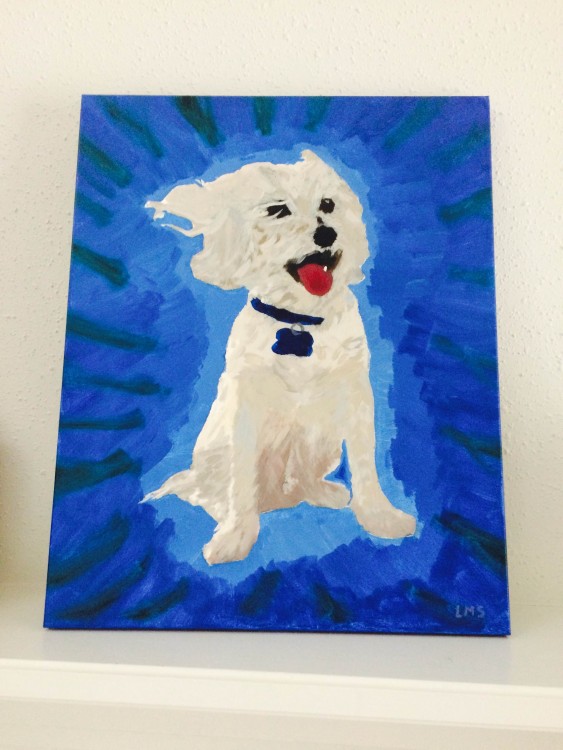What Happens When Stress Causes My Interstitial Cystitis to Flare
I have only been learning about interstitial cystitis for a year; however, I have learned a lot about how different foods and activities affect my condition. I am extremely sensitive to food so diet has been difficult, but my body gives very clear signals if a food is no longer useful to me. These flares usually resolve quickly — not easily, but fairly quickly.
Stress, on the other hand, tends to bring me to my knees. Although I have been working a lot on stress management and communicating my boundaries to others, life hands us major changes. I am constantly reminded that everyone can be hiding a battle beneath their smile and to do my best to be kind.

In less than 48 hours, my husband and I had to face some major life changes, including the death of our beloved pet, Sterling. Sterling had been my companion for over a decade and his death has been truly heartbreaking. I accept that the grieving process will take some time, and I know in the end, all of these life changes are making room for something better.
But what does stress feel like for me? The first symptom is just a bit a burning at the urethra. This can then progress to my bladder, feeling like it is on fire and starting to spasm. I can no longer trust when I need to pee because it constantly feels like I need to pee. This causes me to feel a bit tense and worried which starts to create sensations of pressure in the kidneys. This is the stage when I am still able to function like “normal.”
If things continue to progress, if I continue to push myself, if the stress continues to cause emotional upset or if I am too stubborn, I feel worse. I begin to have severe lightning-like pain on the left side of my abdomen, which is referred pain from the right side of my bladder. This begins to affect my posture and my ability to expand my ribs on the left side. I breathe carefully and slowly, which takes concentration, and I am no longer able to multi-task. I begin to have difficulty following conversations and my cognitive skills slow down.
As my breathing becomes affected, the bladder spasms become more intense, sometimes causing me to shriek in pain or bite my lip. I will begin to clench my pelvic floor muscles and it becomes difficult to relax and urinate. Eventually the pelvic floor muscles begin to spasm and lock down, which impacts my ability to walk. Sometimes I walk painfully slowly, sometimes I limp and in extreme circumstances my husband has carried me around.
In order to get help with this process — help understanding how my body works and help getting the tools that give me control of my body again — I worked with two different pelvic floor physical therapists, both of whom were incredibly patient and supportive. The tools they have given me remind me there is always something I can do. I have learned specific stretches and postures to give moments of respite, which helps me be more patient as my body reminds me in a not-so-gentle way to take a break and trust it is working hard and is still OK.
Sterling was my little superhero. During my most painful flares he was constantly by my side as a comforting presence. As I face this current flare without him, I lean on my other loved ones a little more and I feel the space he left behind. I am so grateful to him for reminding me that being in pain or taking a break from life doesn’t diminish my worth.
We want to hear your story. Become a Mighty contributor here.

